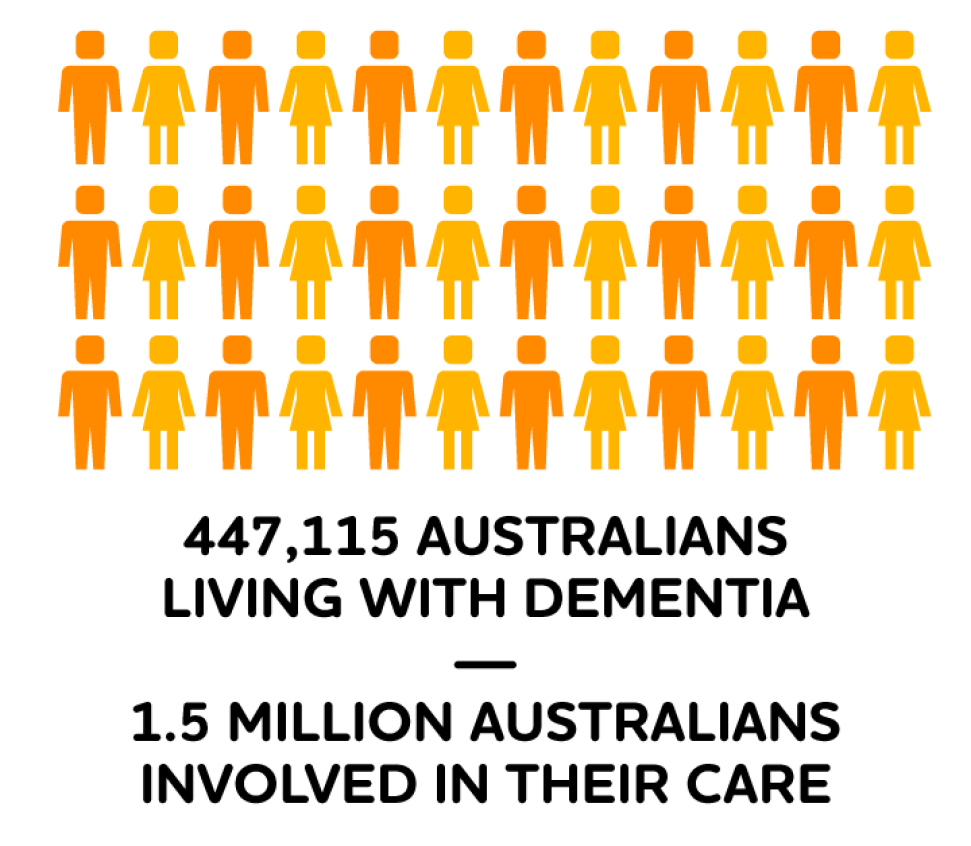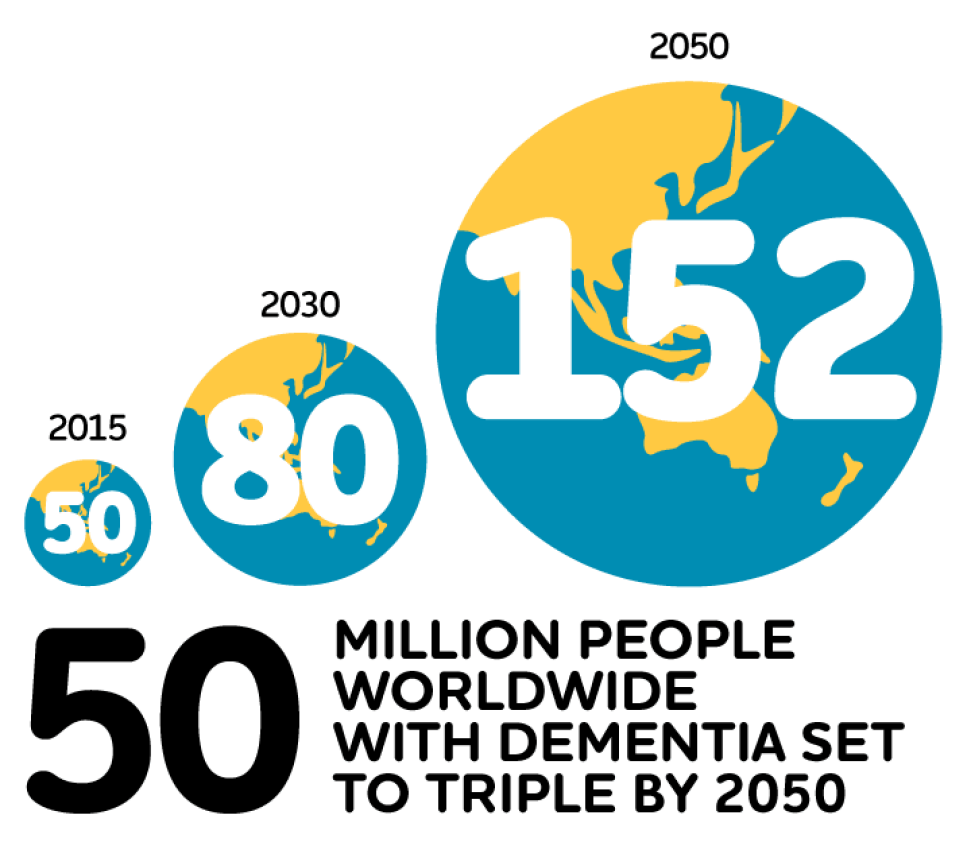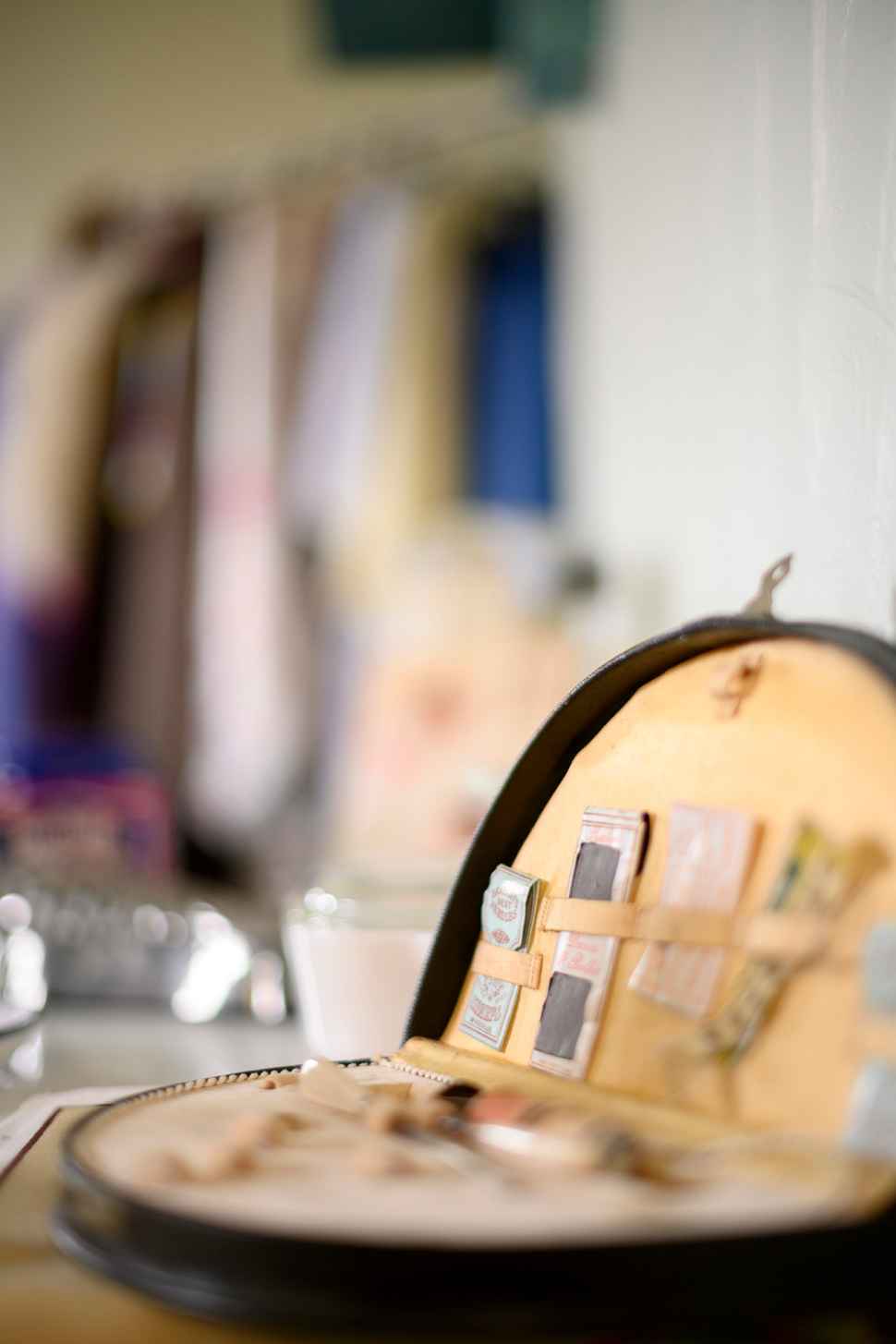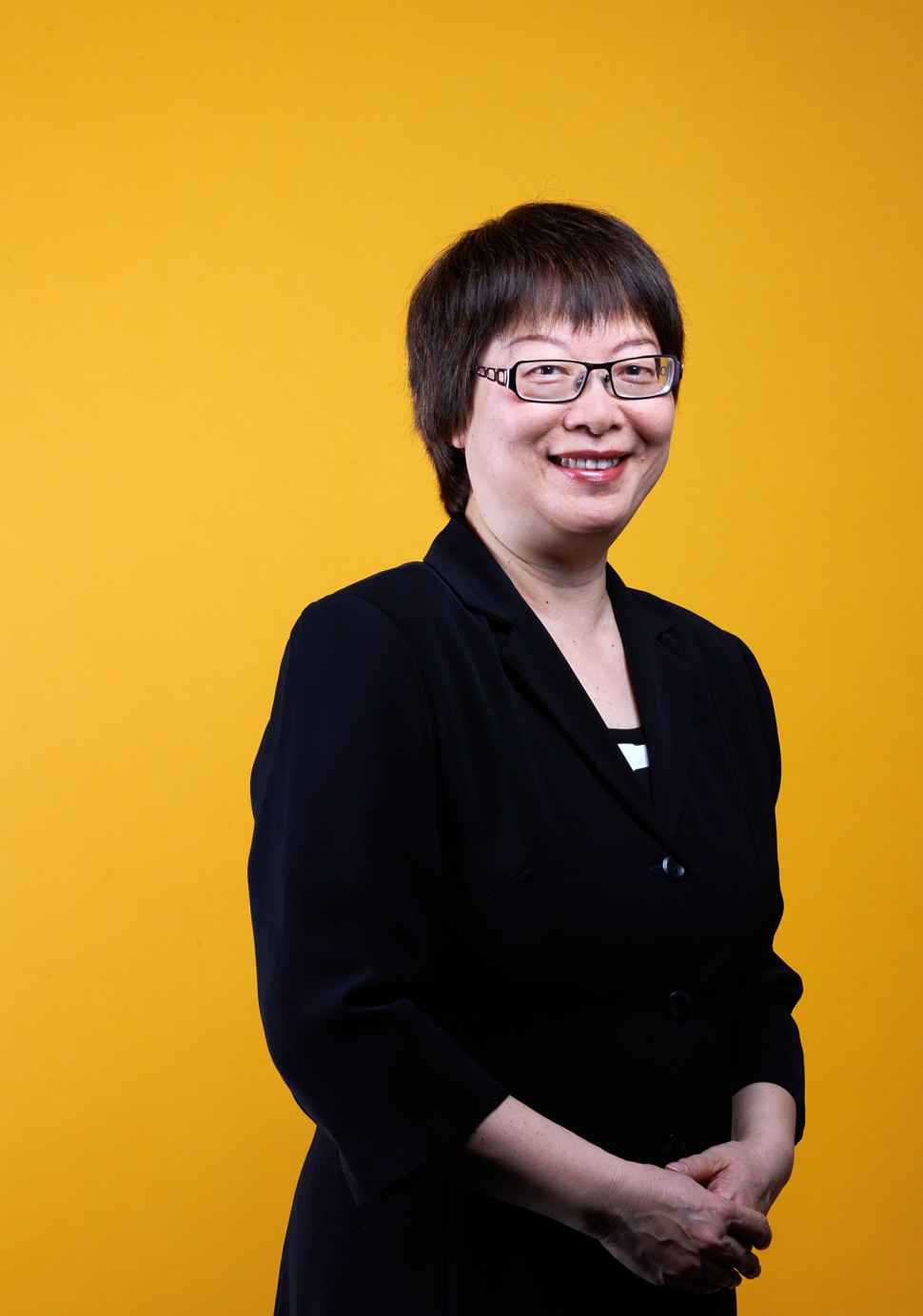
Caring for carers
Is there more that can be done to support family members caring for a loved one with dementia? Research at the Caring Futures Institute is contributing to the World Health Organization’s iSupport for Dementia, an online learning program providing support for family carers.
There are a lot of questions for a family carer of a person living with dementia. And a lot to learn. “Sometimes it’s in the middle of the night when the questions come to you,” Gillian explained, “You wonder how quickly everything will change and on the particularly bad nights doubt enters your mind and you wonder ‘Can I do this?’”
Gillian has heard a lot of questions in her 25 years as an aged care worker and providing support for carers at Resthaven. She asked some of them herself when she became a carer for her elderly neighbour five years ago.
Seventy-five per cent of people living with dementia in Australia are looked after by informal carers – their husbands or wives, children, friends or neighbours. Caring for someone with dementia is both intimate and complex. It’s not just about providing the best possible support for someone they care for but is intertwined with grief and loss, anxiety around the unknown and a deeply personal sense of responsibility.
One of the things most often overlooked is carers’ own self-care.
“Carers don’t always think of the care they might need too,” Gillian said, “We don’t take what we need because we think we’re the ones doing the caring.” Respite services, like those Gillian coordinates at Resthaven, provide formal care of a person with dementia for a few hours through to an overnight away, providing carers with a short break and the opportunity to take time to rest and come back refreshed.
It is also an opportunity for carers to reach out to someone like Gillian and ask some of the questions on their mind. They appreciate knowing she’s been in a similar situation. Gillian is always happy to answer their questions but knows they need support after they’ve gone home too. Which was why she was interested in trialling and providing input for the Australian adaptation of the World Health Organization’s iSupport for Dementia online learning program for carers, led by Professor Lily Xiao at the Caring Futures Institute.
Image above: Aged care professional Gillian in the 'Reminiscence Room' at a Resthaven Aged Care cottage in Adelaide.

Better support
Questions start from the diagnosis of dementia. Most people know very little about dementia until it affects someone in their life. New family carers often ask Gillian “How will I know if a change is the dementia, or just the person, or something else like an infection?” to “Is it ok for me to leave them when I go to the shops?” One of the first two modules being adapted for the Australian pilot of iSupport for Dementia is the Becoming a Carer module. Few existing support services provide such thorough information for new carers and as a leader in aged care, cross-cultural care and carers of dementia research Lily was eager to lead the adaptation of the Australian pilot of iSupport for Dementia.
The online learning starts with a question about the relationship of the carer using the program and the person they are caring for. Examples are included throughout the interactive learning activities which are tailored based on the user's own care relationship. For carers looking after a partner, this can come with unique challenges. Gillian noted, “People are asking themselves ‘How is my relationship or intimacy with my partner going to change?’ They don’t know who to ask and other support services often don’t talk about this.”
“The iSupport for Dementia topics are fantastic for someone who is just starting the journey as a carer,” Gillian added, “It makes a lot of difference knowing what’s going to happen, how relationships are going to change and having useful tips to deal along the way.”
Gillian has a lot of experience in caring – she’s raised four sons and welcomed two foster sons into her home, she was a carer for her neighbour and is professionally trained in aged care and dementia care. She relied on her experience as a carer but knows not everyone goes into a carer role with this professional experience behind them. She believes iSupport for Dementia could help.
Lily does too which is why she’s seeking further funding to adapt the other four iSupport for Dementia modules for the Australian version, including the Providing Everyday Care module she designed. Lily’s contribution to iSupport started in 2015 when she joined the expert panel convening at the World Health Organization’s headquarters in Geneva. Lily’s research and more than 20 years experience as a nurse is embedded into the Providing Everyday Care module to help carers handle common but disruptive challenges for care. There are real-life examples covering changes in appetite, identifying common health conditions affecting eating, and providing personal care to help someone with dementia maintain independence for as long as possible. These learning activities can help carers adapt to their role and to let them know they aren’t alone in these experiences.

Source: Dementia Australia

Source: World Health Organization



Objects used by carers to stimulate memories in the 'Reminiscence Room'.
Better collaboration
Lily and aged care experts know family carers play a key role in keeping someone with dementia at home for as long as possible, reducing hospital and emergency department visits and delaying the need for full-time nursing home care. Home carers provide the best care option for someone with dementia. It was one of the reasons why Gillian and her husband chose to care for their neighbour in his home instead of him having to enter an aged care facility right away.
“But caring for someone with dementia is often 24/7,” Lily acknowledged. There doesn’t feel like there is enough time for carers’ own self-care too. The second learning module of the iSupport for Dementia adapted for the Australian pilot is Care for Myself , focusing on tips and exercises for carers’ self-care. There are music tracks and exercises designed with the purpose of helping carers relax and reduce stress. When Gillian and her husband were carers, they would retreat to the sea aboard their sailboat to recoup each week. But that required formal, in-home respite support, which isn’t always available.
Carers also look to others in similar situations for support or just an ear to listen. “If someone else has gone through something similar, people are like magnets to them,” Gillian has found, “But needing to get dressed and go out is a big barrier for a carer to attend an in-person carer support group.” Gillian runs Facebook support chats for family carers and would like to see enhanced accessibility for the online carer support groups on iSupport for Dementia. Lily agrees and hopes with more funding they can enhance the functionality of iSupport for Dementia’s online carer support groups. This would be useful for carers in rural and remote communities too who have added difficulties accessing support, Lily noted.
Lily understands one the greatest benefits of the adaptation of the Australian pilot of iSupport for Dementia has been the co-design and input from users, practitioners and industry partners. Care providers, such as Resthaven and their employees like Gillian, have joined a team of Australian-wide collaborators. They hope to see the remaining four iSupport for Dementia modules adapted soon.
Better tomorrow
When Gillian thinks of her future, she hopes there will be someone there to care for her. But she also hopes they’ll have more support available to them too.
“Family carers are the cornerstone of dementia care for the future,” Lily acknowledged, “but there’s still not enough support for those carers.” Lily’s work adapting iSupport for Dementia is ongoing. With additional funding she hopes to make this online support program available for all Australian carers.

Lily is an expert in cross-cultural care, caregiver support in dementia care and nursing workforce development. She is a registered nurse with more than 20 years’ experience. She is passionate about providing inclusive and high-quality care for older people and the development of the aged care workforce to achieve this care goal. Lily’s research in aged care and dementia care is recognised by the international peak body, the World Health Organization. She is one of the key contributors to the World Health Organization’s iSupport for dementia and is the lead author of the “Human Resources for Health Observer No 22”. She has led a dedicated research team across Flinders University and aged care organisations to develop, implement and evaluate the ‘Cross-cultural care program for aged care staff’ and scale up the program nationwide using Massive Open Online Courses (MOOC). The program is currently being trialled by aged care facilities around Australia.

![]()
Sturt Rd, Bedford Park
South Australia 5042
South Australia | Northern Territory
Global | Online


